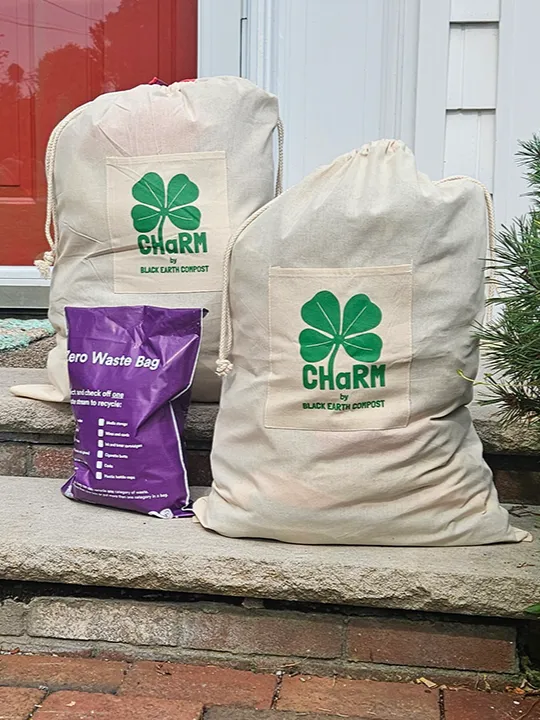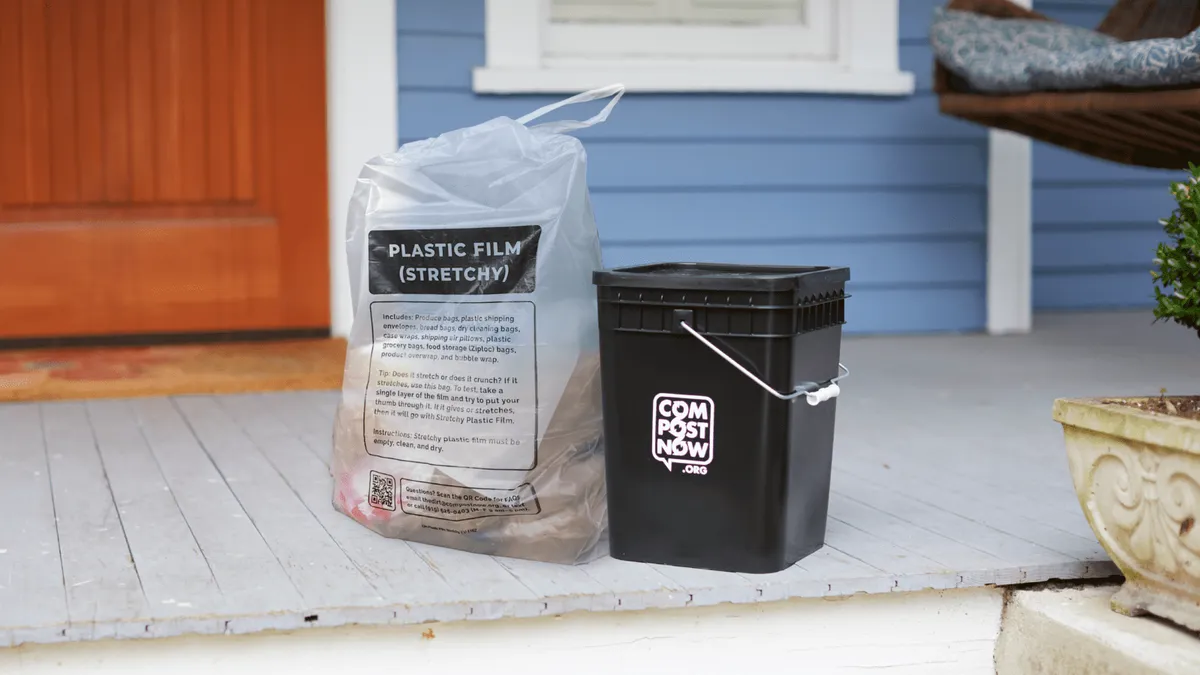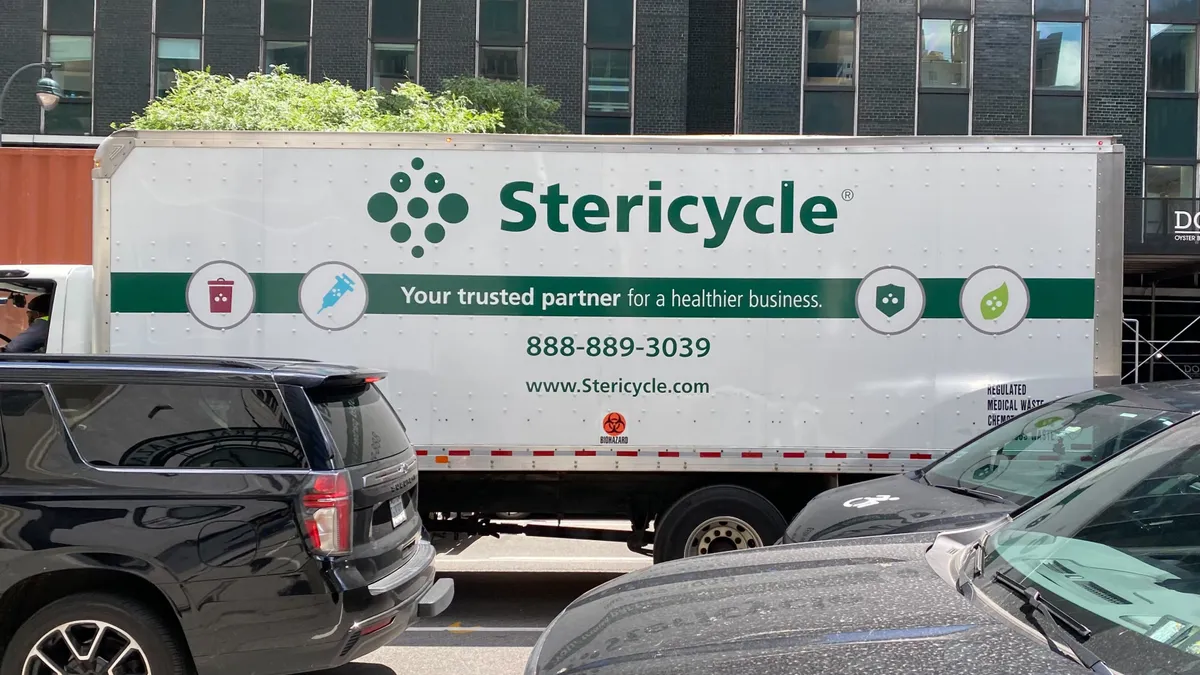A growing number of organics haulers around the country are offering a collection service for hard-to-recycle materials, working with their customer bases to redirect more non-compostable materials from disposal.
The services have risen in partnership with third-party recyclers who are prepared to manage the materials. One vendor, TerraCycle, recently announced that it has partnered with more than 20 providers around the country to provide and collect "Zero Waste Bags" that can manage 24 material categories, including coffee capsules, toothpaste tubes, expanded polystyrene foam and more.
“Our goal is to work with compost companies — or any business that offers in-home or pickup services — nationwide to help residents conveniently recycle more of their household products, particularly items that aren’t generally accepted by local recycling services,” Tom Szaky, founder and CEO of TerraCycle, said in a statement.
Black Earth Compost, an organics hauler and composter operating in Massachusetts, Rhode Island and New Hampshire, has begun partnering with TerraCycle in the greater Boston area. The company’s residential and commercial customers will be notified each month when Black Earth is running a collection route and will have the ability to sign up for pickup on that date. They can receive the collection either as a one-time fee or add a subscription for collection monthly or quarterly.
David Stephenson, compost growth manager at Black Earth, said the program aligns with his company's mission to keep materials out of landfills or incinerators.

Stephenson said interest in a hard-to-recycle materials collection service has grown steadily since his company began doing pickups for electronics in late 2022. Black Earth already has roughly 40,000 customers signed up for its organics collection services, and Stephenson said that customer base gave the company the confidence to further expand its capabilities with the TerraCycle bags.
"Black Earth Compost was started to divert food waste from landfill," Stephenson said. "It only makes sense to progress and divert everything we can, especially since we have such a huge network of folks who pay for this service."
TerraCycle said it plans to continue expanding the service, which is already available through providers in states like New York, Maryland, Illinois and Tennessee.
CompostNow, an organics hauler and composter based in Georgia, has also been building its capacity to collect and redirect hard-to-recycle materials. The organization began piloting such a system in Asheville, North Carolina, in November 2023 before growing to Charleston, South Carolina, in March and Atlanta in April. Most recently, the organization expanded to the Research Triangle, which includes Raleigh and Durham, North Carolina.
CompostNow picks up items from customers during its normal organics collection stops. Like other haulers moving into this space, CompostNow finds local partners to properly manage the materials it collects, including organizations like Atlanta nonprofit Live Thrive. Together, the partners collect and recycle products such as batteries, textiles, small electronics and several kinds of plastics.
David Paull, chief impact officer at CompostNow, said a lot of his customers distrust the curbside recycling system today. Offering a service that's transparent about where each material stream goes has been key to earning sign ups, he said.
"It's almost like a return back to the early days of recycling where we do source-separate," Paull said. "I think more and more, consumers are seeking experiences like that."
CompostNow began offering the service in part because customers were asking for help identifying solutions for these materials. They started gauging interest by surveying customers before the pilots began, said Chief Operating Officer Kat Nigro.
Across its markets, CompostNow has collected more than 850 bags to date. Nigro said they were initially concerned with whether customers would actually use the service rather than just indicate interest on a survey, but they've been pleased with the results.
The fees haulers charge their customers for the hard-to-recycle service vary. CompostNow charges $7 per bag. Black Earth Compost charges about $20 to $25 per pickup, according to Stephenson. O-Town Compost — based in Orlando, Florida — charges about $5 to $10 per pickup for its smaller list of materials.
Charlie Pioli, founder and CEO of O-Town, said the service brings in a small proportion of his company's overall revenue. To fit the service alongside its organics collection, O-Town limits its customers to setting out one bag of textiles per pickup, for instance, to ensure trucks still have the space for organics.
Despite its limitations, the hard-to-recycle collection service is still popular with customers. Pioli said it adds convenience for those who may not necessarily keep up with their city’s household waste drop-off events but still want to be sustainable.
"It aligns with our mission and it just makes our composting subscription all that much better from a customer standpoint," Pioli said. "We’re just adding value for our customers and now they can recycle more than just their food scraps."



















